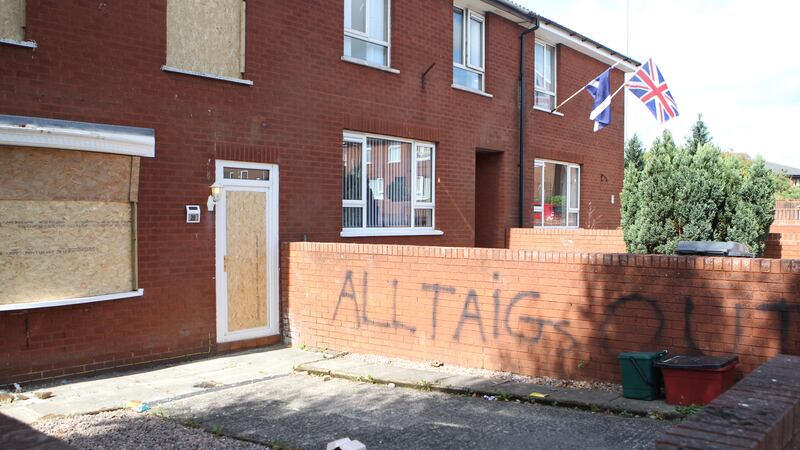Sectarianism, racism and homophobia are based on deep-seated prejudice, power and privilege.
I was reminded over the summer about the role each has played in society throughout my lifetime and that of generations of people across the world – especially people and nations directly affected by imperialism and colonisation.
I read three books on my holidays which illustrated the deadly impact of sectarianism, racism and homophobia on nations and on individuals.
‘All the Risings: Ireland 1014-1916’ by Kevin Kenna, gallops impressively through almost one thousand years of Irish resistance to British occupation and colonisation; ‘Life and Times of Michael K’ by J M Coetzee, deals with the degradation of society and human beings in South Africa, as the white racist regime crumbles in the face of the demands of Blacks for liberation; and in ‘Maggie and Me’ Damian Barr, admirably uses humour to tell his heart-breaking story of being gay in primary and secondary school in Glasgow in Thatcher’s Britain – hence the title.
In that literature, sectarianism - religious and political - is used by Britain to hold Ireland for its ‘empire’; skin colour holds South Africa for a white minority; and sexual orientation is the litmus test for acceptability in Thatcher’s Britain.
Democracy expunged institutional racism in South Africa; human rights law did the same for the LGBT community in Britain and here institutional sectarianism continues in the north, where, with British government patronage, it continues to distort and frustrate the emergence of a new society. That is not to say that sectarianism exists solely in the north; partition made it easier for it to continue in the south as well but its structure, intent and purpose is different but equally unacceptable.
The message from the books is age-old and timeless. It is about resilience, political and personal, in the pursuit of justice and change.
Earlier this year Sinn Féin launched its ‘One Community’ – Pobal Amháin – document to focus public attention on its efforts to tackle what it calls, “the scourge of sectarianism in Irish society”.
I think it is fair to say that sectarianism and the attitudes it cultivates and incubates has remained largely untouched by the societal changes brought about in the north by over twenty tears of peace – although some progress has been made.
That is understandable because here it is in its most concentrated form where for decades the Unionist Party ran the state in the vested interests of it and its supporters.
Sectarianism influenced and determined issues such as employment, education, housing and voting rights. It legitimised discrimination, communal violence and division.
Sectarianism and sectarian segregation has infected each and every level of northern society.
It can only be eradicated from society when it is removed from the institutions which govern that society. It requires the full participation of political parties, civic society, trade unions, business and citizens in that task.
The object of this must be the creation of a legally-binding, anti-sectarian, rights-based society in the north.
A rights-based society would protect people in employment, their housing needs, where they can socialise, where they can pray, and all of this would be upheld by the institutions of government.
The overarching framework – fully functioning – to guide anti-sectarian policies is the Good Friday Agreement and the North South Ministerial Council.
Its principles of mutual respect, parity of esteem, equality and the right to live free from sectarian harassment and to pursue peacefully political aspirations, challenges the ingrained culture of sectarianism.
In its ‘One Community- Pobal Amháin’ document Sinn Féin makes a number of proposals: embed anti-sectarianism at the heart of the political institutions; incorporate a citizens anti-sectarian charter into the pledges of ministers, MLAs, TDs and local councillors implement fully the ‘Together: Building a United Community’ strategy in the north; encourage all-party unity and leadership for a popular campaign against sectarianism and segregation, north and south; introduce a clear legal definition of sectarianism as a hate crime and set up a civic forum in the north to provide a community platform to oppose sectarianism.
The anti-sectarianism agenda does not belong to Sinn Féin. It is making ground-breaking proposals which can become common ground and should be responded to positively and promoted.
A new rights-based society in the north in an all-island setting is possible with the removal of sectarian prejudice.








